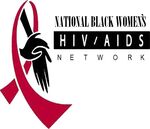ABOUT US
Our History
On June 15, 2006, sixteen African-American women convened a meeting in Washington, D.C. to discuss the plight of Black women living with HIV and AIDS in our nation. The two-day meeting focused on the urgent need for African- American women to influence and set public policy for Black women infected with and at risk of HIV/AIDS in the United States.
The following year, the National Black Women’s HIV/AIDS Network was introduced to the AIDS community at the 2007 United States Conference on AIDS in Palm Springs California and August 21, 2009 the Network received its non-profit incorporation status.
The Network demonstrates the high degree of commitment, dedication and urgency around the need to proactively plan and promote a political platform of action for Black women infected with and at risk of HIV/AIDS in this country and ensures that the leadership of Black women is part of the efforts to build a national policy agenda that will address the complex needs of Black women living with and at risk of HIV/AIDS.
The following year, the National Black Women’s HIV/AIDS Network was introduced to the AIDS community at the 2007 United States Conference on AIDS in Palm Springs California and August 21, 2009 the Network received its non-profit incorporation status.
The Network demonstrates the high degree of commitment, dedication and urgency around the need to proactively plan and promote a political platform of action for Black women infected with and at risk of HIV/AIDS in this country and ensures that the leadership of Black women is part of the efforts to build a national policy agenda that will address the complex needs of Black women living with and at risk of HIV/AIDS.
Our Founding Members
Jacqueline Coleman, Washington, DC,
Bambi Gaddist, Columbia, South Carolina
Deborah Hickman, Baltimore, Maryland
Debra Fraser-Howze, New York, New York
Vanessa Johnson, Washington, DC
Barbara Joseph, Houston, Texas
Deborah Levine, Bronx, New York
Marlene McNeese-Ward, Houston, Texas
Linda H. Scruggs, Washington, DC
Rae Lewis Thornton, Chicago, Illinois
Ivy Turnbull, Brooklyn, New York
Ferdette West, Washington, DC
A. Toni Young, Washington, DC
Bambi Gaddist, Columbia, South Carolina
Deborah Hickman, Baltimore, Maryland
Debra Fraser-Howze, New York, New York
Vanessa Johnson, Washington, DC
Barbara Joseph, Houston, Texas
Deborah Levine, Bronx, New York
Marlene McNeese-Ward, Houston, Texas
Linda H. Scruggs, Washington, DC
Rae Lewis Thornton, Chicago, Illinois
Ivy Turnbull, Brooklyn, New York
Ferdette West, Washington, DC
A. Toni Young, Washington, DC
Our Purpose
The National Black Women’s HIV/AIDS Network (NBWHAN) is organized to provide leadership and expertise in the prevention and spread of HIV/AIDS and other health disparities that affect black women and girls nationally and internationally.
Our Mission
The mission of the NBWHAN is to reduce the burden of morbidity, mortality and stigma of HIV/AIDS and other health disparities associated with gender, social, and economic inequities among Black women and girls.
Our Goals
Reduce the burden of morbidity, mortality and stigma associated with HIV/AIDS and other health disparities among Black women and girls nationally and internationally.
Promote the health and well-being of Black women and girls living with or affected by HIV/AIDS and other infectious diseases.
Raise awareness for Black women and girls’ health issues and concerns domestically and globally through public awareness and education among the target population and community stakeholders.
Heighten the national response and levels of gender-responsive approaches to service delivery for Black women and girls in the United States.
Provide leadership, capacity-building to organizations serving black women and girls, and health promotion and educational initiatives.
Promote the health and well-being of Black women and girls living with or affected by HIV/AIDS and other infectious diseases.
Raise awareness for Black women and girls’ health issues and concerns domestically and globally through public awareness and education among the target population and community stakeholders.
Heighten the national response and levels of gender-responsive approaches to service delivery for Black women and girls in the United States.
Provide leadership, capacity-building to organizations serving black women and girls, and health promotion and educational initiatives.


